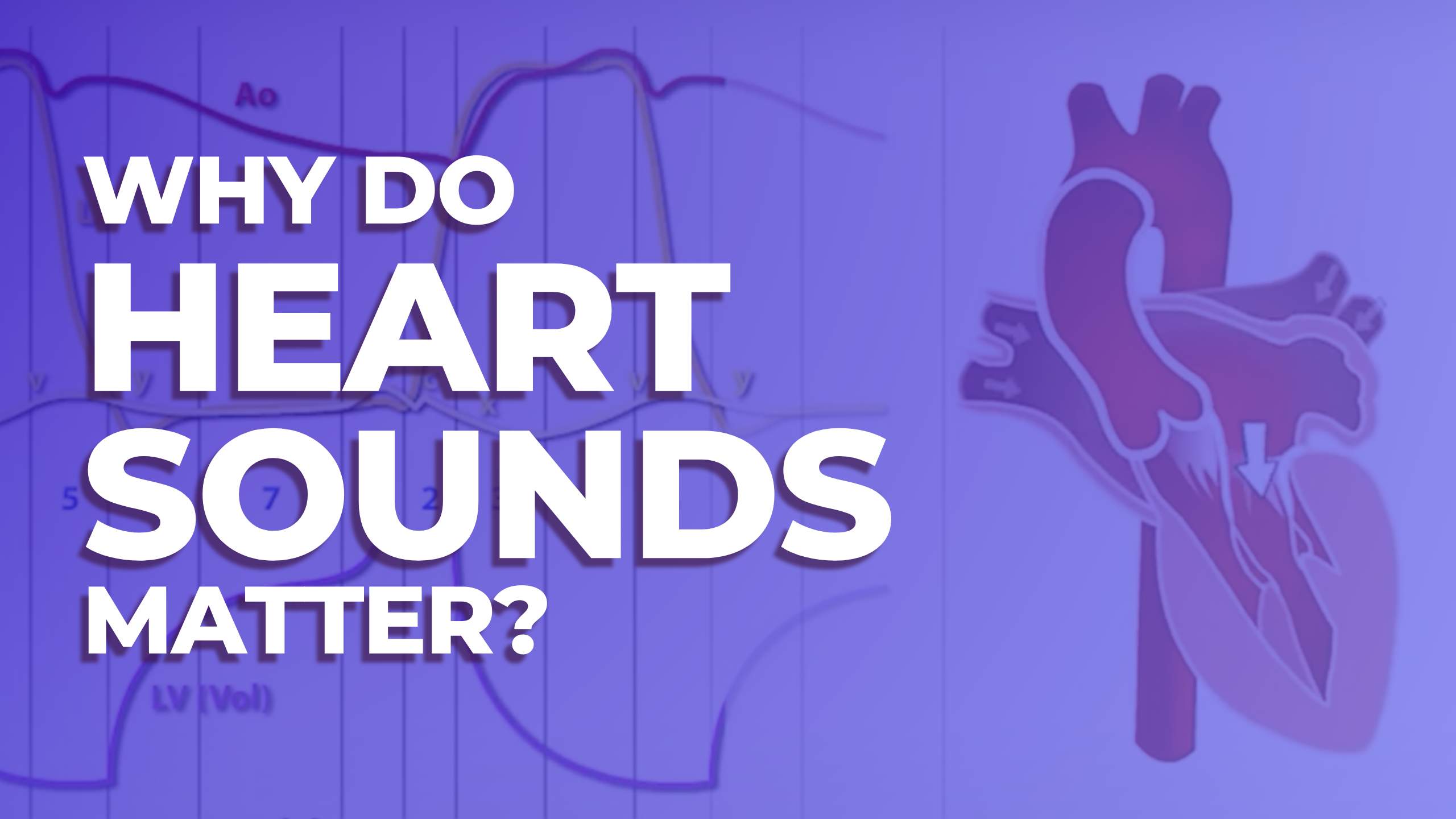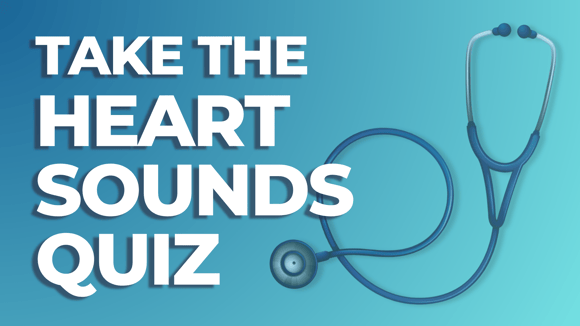5 Reasons to Brush Up on Heart Sounds During American Heart Month

Studies have shown that 22% of internal medicine residents correctly assess heart sounds in patients, and 30% of pediatric residents auscultate and diagnose accurately(1). Heart sounds are hard to learn, and—when it comes to auscultation skills—if you don't use it, you lose it(2).
Auscultation skills are important to you as a healthcare provider, but they're often poorly taught or neglected. Plus, did you know that cardiac exam skills don't improve, on average, after your third year of med school? In most cases, they decline.
In order to pass boards (and be a competent physician), you need to know the heart sounds and murmurs. You should know the maneuvers to differentiate murmurs as well as heart defects and associated sounds.
Here are five reasons to your polish your cardiac auscultation skills during American Heart Month.
1. Reinforce patient connections
Physical exams are becoming less frequent as technological advances improve diagnostic testing, making these exams less necessary. However, physical touch is one of the most effective ways to improve your relationship with patients. Your physical touch can help reduce your patient’s anxiety and even have healing effects.
2. Improve patient safety
Cardiac auscultation helps you understand whether or not your patients require immediate medical attention. Listening to your patient’s heart sounds can even be as good as preventive medicine.
When you hear (and can recognize) an “opening snap,” you’ll be able to test your patients for mitral stenosis; likewise, if you don’t hear the fist-sized area of dullness left of the sternum, you’ll test patients for emphysema. Your ability to "see" with hearing is very important in knowing how critical a patient is and how to refer them on.
3. Sharpen medical decision making
Auscultation provides important clinical-prognostic information, and—especially for general practitioners—helps you guide the next step in patient care. The quick ability to hear and recognize what’s going on in your patient’s body means you can act faster when it comes to treatment and potentially save even more lives.
4. Provide cost-effective care
When your cardiac auscultation skills are sharp, you can ‘see’ with your ears, and you’re able to diagnose accordingly. If you’re using technology to evaluate patients, they’re eventually paying for it. And technology is expensive. That’s why it hasn’t hit most areas of the U.S.—it’s not affordable for every physician to implement. Auscultation is widely used because it is the most cost-effective option for listening to heart sounds.
5. Increase cardiology understanding
Practicing your auscultation skills is the best hands-on way to gain essential cardiology knowledge. Start a free trial of our Digital Study Strong Essentials today to explore the entire cardiology section of the Core, Flashcards, and Qbank+ free for 30 days. No credit card required.
Ready to sharpen your auscultation skills? Remember: you need to practice heart sounds hundreds of times before you can accurately memorize and recognize them.
Not sure if you need a review? Double check your competency with this heart sounds quiz.



